And how are they? Technical control over retail in foreign countries
The duties of any state include control over trading operations. In the 21st century, it is better to do this with the help of modern technology - it will be easier for everyone. And while in our country there is a massive transition to online cash registers, we want to acquaint you with what approaches to sales accounting have already been implemented in some other countries of the world.
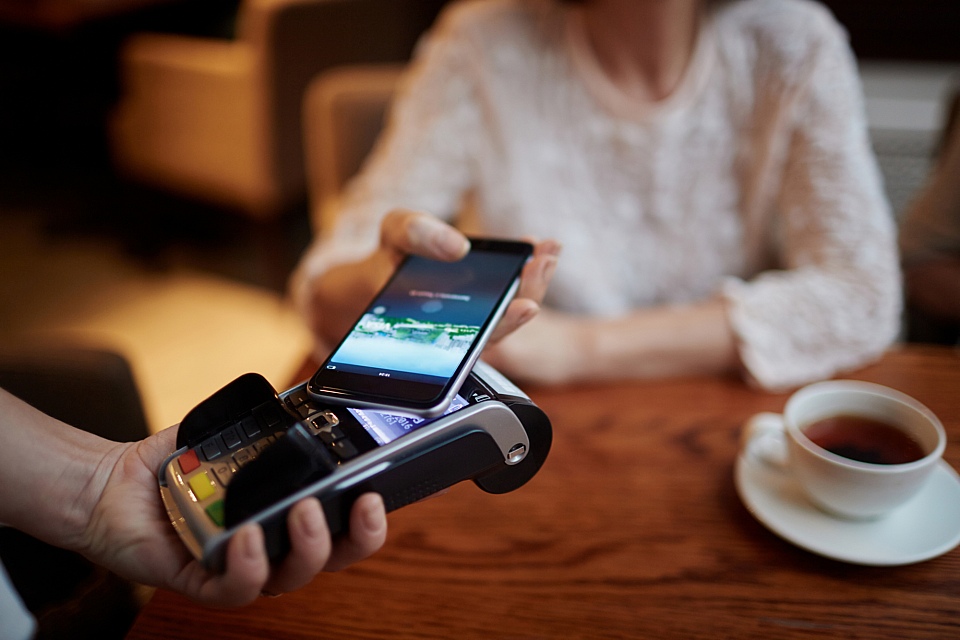
Business seeks to increase profits. And sometimes high financial indicators can be achieved by illegal means, in particular, by manipulating tax reports.
Theoretically, the tax authorities can check all the company's transactions, but in terms of paper workflow, such total control will turn into a Kafkian nightmare, which will require enormous time and financial costs.
')
The situation is much better in countries introducing new technologies in the cash sector.
Russia, with the latest amendments to the Law 54-FZ "On the use of cash registers", introducing the mandatory widespread use of online cash registers since July 1, 2018, is moving in the same direction, but is not a pioneer.
In 2005, South Korea launched the mass introduction of online cash registers, and since then a number of countries have adopted this practice. Typical online cash registers are a software package or a software and hardware complex, consist of several modules or contain everything you need in a single package.
They can store the data in an encrypted form in a “fiscal drive” or transfer it to the tax service via the network, continuously or periodically, via common communication channels or through the infrastructure of the operator of fiscal data. The nuances of the work of new cash registers depend on many factors. We suggest you look at the experience of some foreign countries, where these technical solutions have long taken root.
Since July 2015, new cash registers have been used to make purchases in Kazakhstan, which transmit information about cash payments to the tax authorities in real time.
The interaction of the seller and tax authorities in the Republic is the responsibility of the operator of fiscal data - Kazakhtelecom. Information about settlements, unlike in Russia, where it is encrypted in the fiscal cash register module and goes through open channels, is transmitted through a VPN tunnel.
The information goes to the server operator. It confirms the receipt of data and forms a receipt, which the seller prints and gives out to the buyer.
Kazakhtelecom generates daily reports on the operation of each cash office and sends them to the servers of the State Revenue Committee of the Republic of Kazakhstan. Tax authorities have full access to the operator’s database through a simple web interface and track the calculations for each of the cash desks.
In this country, the modernization of cash registers began in December 2013. Now all cash desks are supplied with a fiscal printer-registrar, which additionally maintains an electronic transaction log, certifying an electronic signature.
Business transmits a journal to the tax authorities along with a tax return, often on a separate carrier, since there are many areas in the country with unstable or slow Internet connections.
In Sweden, almost all sales are recorded by the cash register itself, storing all information on them in a separate device.
The ticket office itself must comply with generally accepted standards, and the local version of the fiscal accumulator is certified and registered by state authorities.
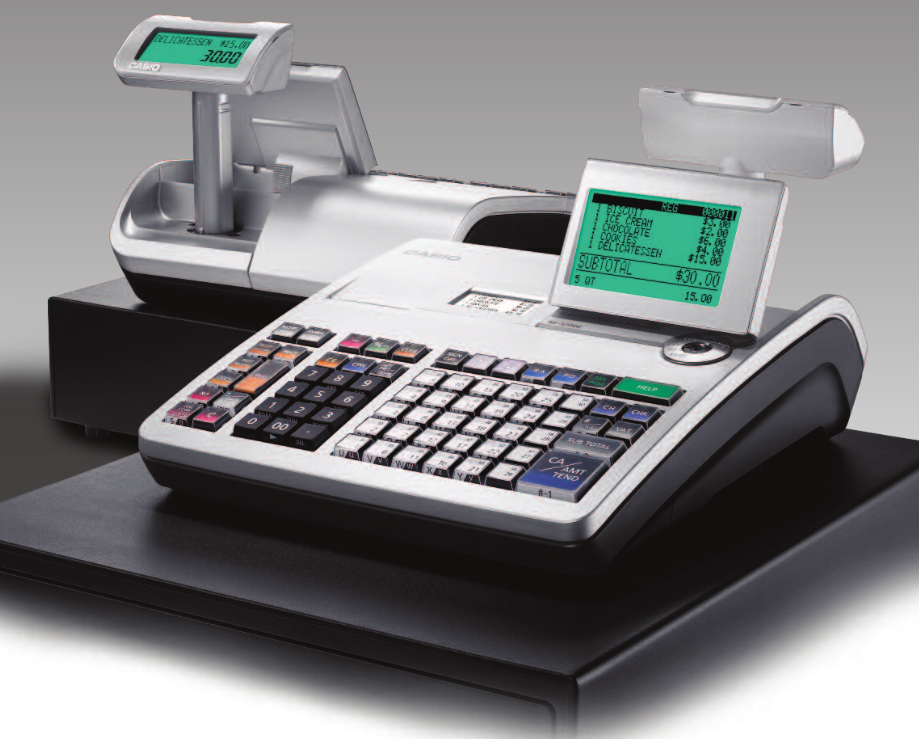
The drive stores information about receipts (the total number of checks and the number of checks of different types, the total amount of transactions) and information about each of the sales separately (receipt number, date, time, amount of VAT). All data is encrypted. Encryption keys are available to the tax authorities of the kingdom.
Drives use almost everything - with the exception of taxis, online stores, government and municipal organizations.
Taxpayers may try to convince government agencies to make an individual exception, but they must prove its feasibility and guarantee reliable financial control by other means.
In this country, online ticketing appeared in 2014. The Hungarian Fiscal Control Unit (FCU) licenses only cash registers with a built-in financial control unit.
Transaction data is encrypted and regularly submitted to the tax authority. Interestingly, the role of intermediaries - operators of fiscal data, to use Russian terminology, is performed in Hungary by the main cellular operators with coverage throughout the country.
Due to the mobile network, you can track the location of cash registers on the map.
For inspections, portable inspection terminals with connection to a central database are used. With their help, the on-site tax inspector can verify whether the number and type of cash desks in the store match the data in the documents and the amounts in them are in line with the financial statements.
In Slovakia, electronic cash registers (ECR) appeared in 2008, and from January 1, 2015 virtual virtual cash register register (vECR) was launched.
vECR is a web platform integrated into the website of the Finance Ministry of the Republic. It is free and available to every seller from a personal computer, smartphone or tablet.
Unlike the check issued by ECR, the vECR cash check contains not only a unique identification code and a QR code with all the information about the sale, but also the entrepreneur’s details: company name, billing address, point of sale address, tax identification number.
The QR code on the check is intended for buyers. Considering it using a smartphone application and finding inconsistencies, the buyer is entitled to file a complaint with the tax authorities.
All transactions carried out by the seller are stored on the servers of the tax authorities.
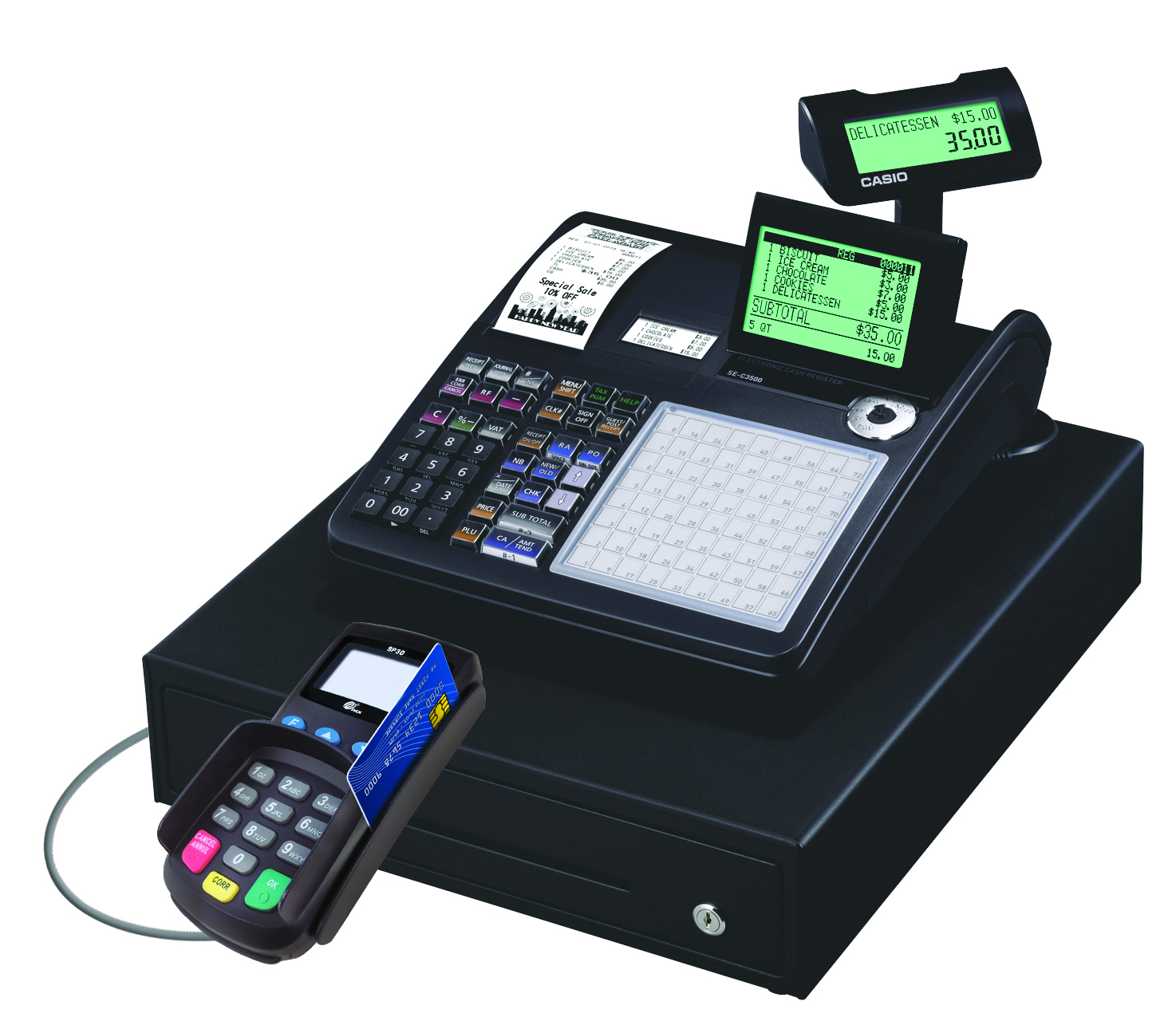
With the help of ECR and vECR, inspectors receive information on all cash registers (location of retail outlets, issued checks, amount in the cash register).
For field checks, instead of special terminals, as in Hungary, an application is used for remote access to tax bases.
It is assumed that it will provide data on the "financial behavior" of the entrepreneur, issued checks and tax returns directly "in the field" in real time.
Changes to the Austrian federal tax code were made in two stages.
From January 1, 2016:
Since April 1, 2017, the requirements have been tightened:
At the same time, the software of the cash register does not require certification. In Austria, it is believed that electronic signature and hardware encryption are sufficient to protect the data.
At the request of the tax authorities, the company is obliged to keep all checks issued by the cash register in paper or electronic form for control, and also to transfer DCL on an external medium for the period determined by the tax authority. The media is provided by the company.
In 2014, Belgium strongly modernized legislation to combat non-payment of VAT.
Cash registers must be certified by the Ministry of Finance, and special technical solutions collect sales data.
The Registered Cash Register System (RCRS) includes three devices:
When a transaction is registered in ECR / POS, information about it is received in FDM, which records the time and puts an electronic digital signature. Some of the information is printed on the check - to make it possible to check it.
In the province of Quebec, the tax administration is introducing another sales recording approach - SRM for bars, restaurants and other similar establishments.
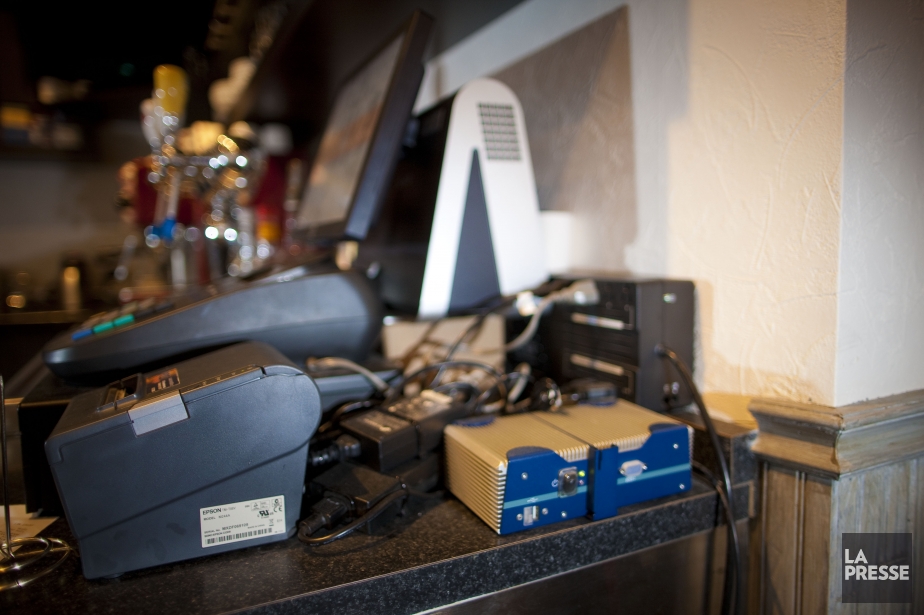
This module has three main functions.
It receives, registers and sends transaction data from the point of sale / cash register to the receipt printer. The check generated by the SRM contains the total amount of tax due on the transaction, the date and time of the invoice, the institution information, a bar code and an individual digital signature that guarantees the authenticity of the document.
SRM data helps standardize accounting for all bars and restaurants. Installing SRM gives you the right to claim tax breaks.
The SRM also forms a “sales list” that can be sent to the tax authority upon request.
The tax authority establishes technical requirements for cash registers in order to ensure compatibility with the SRM, and issues certificates of conformity.
For checks in institutions with SRM used laptops.
Inspectors visit restaurants under the guise of ordinary customers and check if they are given a check. After that, they read a barcode from it and determine if it is set using SRM.
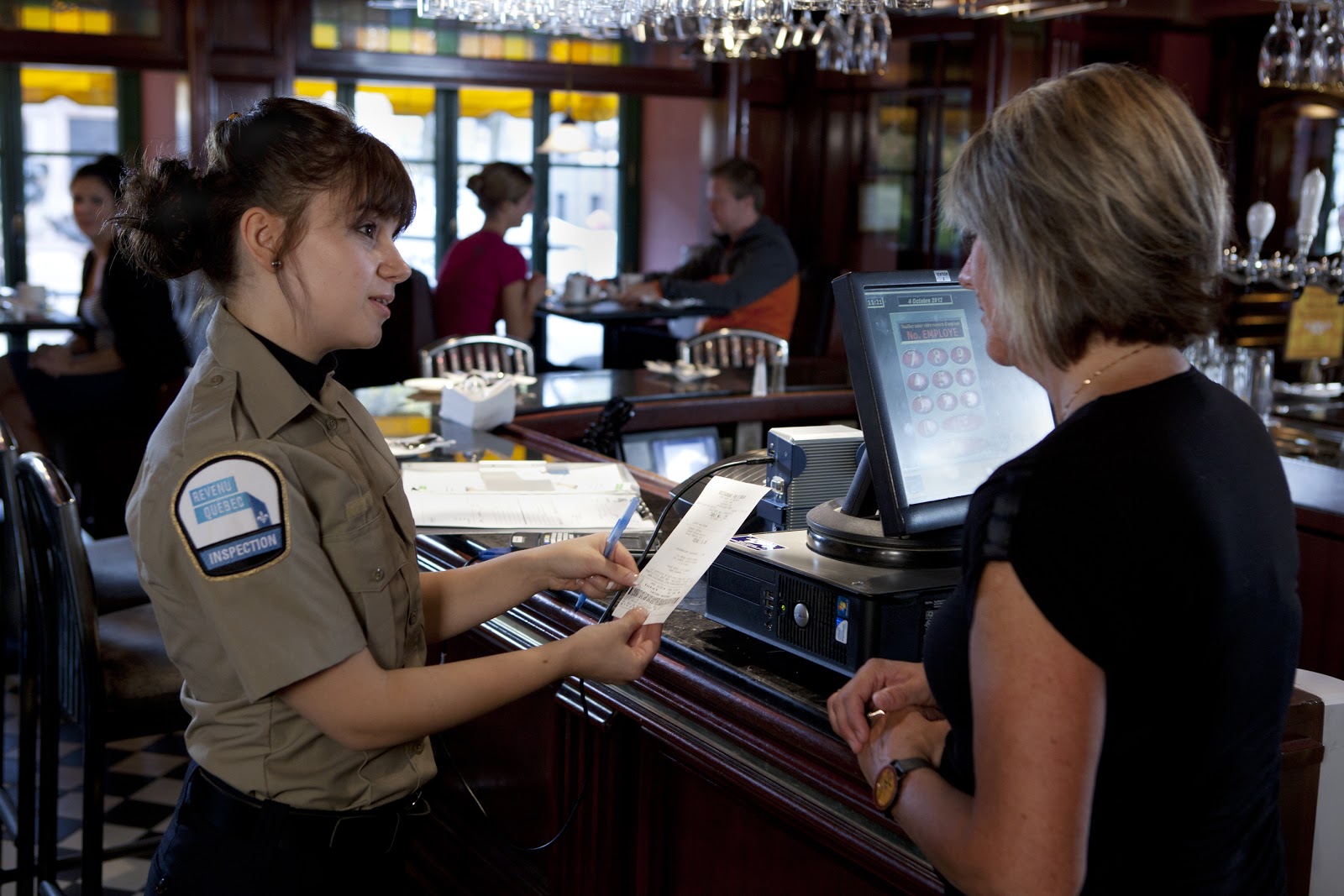
Despite the strong differences in the technical aspects of control over the payment of taxes from retail sales, all the systems described have one thing in common.
Having introduced new control-cash technologies, the authorities are invariably impressed by their ability to take into account incomes previously hidden and not taxed. On the other hand, these same cash registers protect against theft from employees, preventing manipulations with local reporting, and reduce the burden that tax audits represent.
For example, in Canadian Quebec, the average time required for on-site inspection of a restaurant was about 70 hours. After the proliferation of modern cash registers, it was reduced to three hours, and checks are more often carried out remotely.

Business seeks to increase profits. And sometimes high financial indicators can be achieved by illegal means, in particular, by manipulating tax reports.
Theoretically, the tax authorities can check all the company's transactions, but in terms of paper workflow, such total control will turn into a Kafkian nightmare, which will require enormous time and financial costs.
')
The situation is much better in countries introducing new technologies in the cash sector.
Russia, with the latest amendments to the Law 54-FZ "On the use of cash registers", introducing the mandatory widespread use of online cash registers since July 1, 2018, is moving in the same direction, but is not a pioneer.
In 2005, South Korea launched the mass introduction of online cash registers, and since then a number of countries have adopted this practice. Typical online cash registers are a software package or a software and hardware complex, consist of several modules or contain everything you need in a single package.
They can store the data in an encrypted form in a “fiscal drive” or transfer it to the tax service via the network, continuously or periodically, via common communication channels or through the infrastructure of the operator of fiscal data. The nuances of the work of new cash registers depend on many factors. We suggest you look at the experience of some foreign countries, where these technical solutions have long taken root.
Kazakhstan
Since July 2015, new cash registers have been used to make purchases in Kazakhstan, which transmit information about cash payments to the tax authorities in real time.
The interaction of the seller and tax authorities in the Republic is the responsibility of the operator of fiscal data - Kazakhtelecom. Information about settlements, unlike in Russia, where it is encrypted in the fiscal cash register module and goes through open channels, is transmitted through a VPN tunnel.
The information goes to the server operator. It confirms the receipt of data and forms a receipt, which the seller prints and gives out to the buyer.
Kazakhtelecom generates daily reports on the operation of each cash office and sends them to the servers of the State Revenue Committee of the Republic of Kazakhstan. Tax authorities have full access to the operator’s database through a simple web interface and track the calculations for each of the cash desks.
Argentina
In this country, the modernization of cash registers began in December 2013. Now all cash desks are supplied with a fiscal printer-registrar, which additionally maintains an electronic transaction log, certifying an electronic signature.
Business transmits a journal to the tax authorities along with a tax return, often on a separate carrier, since there are many areas in the country with unstable or slow Internet connections.
Kingdom of Sweden
In Sweden, almost all sales are recorded by the cash register itself, storing all information on them in a separate device.
The ticket office itself must comply with generally accepted standards, and the local version of the fiscal accumulator is certified and registered by state authorities.

The drive stores information about receipts (the total number of checks and the number of checks of different types, the total amount of transactions) and information about each of the sales separately (receipt number, date, time, amount of VAT). All data is encrypted. Encryption keys are available to the tax authorities of the kingdom.
Drives use almost everything - with the exception of taxis, online stores, government and municipal organizations.
Taxpayers may try to convince government agencies to make an individual exception, but they must prove its feasibility and guarantee reliable financial control by other means.
Hungary
In this country, online ticketing appeared in 2014. The Hungarian Fiscal Control Unit (FCU) licenses only cash registers with a built-in financial control unit.
Transaction data is encrypted and regularly submitted to the tax authority. Interestingly, the role of intermediaries - operators of fiscal data, to use Russian terminology, is performed in Hungary by the main cellular operators with coverage throughout the country.
Due to the mobile network, you can track the location of cash registers on the map.
For inspections, portable inspection terminals with connection to a central database are used. With their help, the on-site tax inspector can verify whether the number and type of cash desks in the store match the data in the documents and the amounts in them are in line with the financial statements.
The Slovak Republic
In Slovakia, electronic cash registers (ECR) appeared in 2008, and from January 1, 2015 virtual virtual cash register register (vECR) was launched.
vECR is a web platform integrated into the website of the Finance Ministry of the Republic. It is free and available to every seller from a personal computer, smartphone or tablet.
Unlike the check issued by ECR, the vECR cash check contains not only a unique identification code and a QR code with all the information about the sale, but also the entrepreneur’s details: company name, billing address, point of sale address, tax identification number.
The QR code on the check is intended for buyers. Considering it using a smartphone application and finding inconsistencies, the buyer is entitled to file a complaint with the tax authorities.
All transactions carried out by the seller are stored on the servers of the tax authorities.

With the help of ECR and vECR, inspectors receive information on all cash registers (location of retail outlets, issued checks, amount in the cash register).
For field checks, instead of special terminals, as in Hungary, an application is used for remote access to tax bases.
It is assumed that it will provide data on the "financial behavior" of the entrepreneur, issued checks and tax returns directly "in the field" in real time.
Austrian Republic
Changes to the Austrian federal tax code were made in two stages.
From January 1, 2016:
- Every transaction in the country requires a receipt to be printed;
- Companies with an annual turnover of more than 15,000 euros, provided that the annual cash turnover exceeds 7,500 euros, must use electronic cash registers;
- Each cash register is required to keep a log (data collection log - DCL) for recording and storing information about each cash transaction;
- DCL must be handed over to the tax authorities upon request.
Since April 1, 2017, the requirements have been tightened:
- Each cash register must be equipped with a device for creating an electronic signature and a fiscal drive;
- All checks are signed;
- The cash register must print a final “zero check” report every month and store all data in DCL;
- Companies should purchase cash register equipment only from certified suppliers.
At the same time, the software of the cash register does not require certification. In Austria, it is believed that electronic signature and hardware encryption are sufficient to protect the data.
At the request of the tax authorities, the company is obliged to keep all checks issued by the cash register in paper or electronic form for control, and also to transfer DCL on an external medium for the period determined by the tax authority. The media is provided by the company.
Belgium
In 2014, Belgium strongly modernized legislation to combat non-payment of VAT.
Cash registers must be certified by the Ministry of Finance, and special technical solutions collect sales data.
The Registered Cash Register System (RCRS) includes three devices:
- Electronic cash register / outlet (ECR / POS) with the ability to configure and disable individual functions;
- Fiscal Data Module (FDM) - encrypted fiscal drive;
- VAT Signing Card to digitally sign a check.
When a transaction is registered in ECR / POS, information about it is received in FDM, which records the time and puts an electronic digital signature. Some of the information is printed on the check - to make it possible to check it.
Quebec - Canada
In the province of Quebec, the tax administration is introducing another sales recording approach - SRM for bars, restaurants and other similar establishments.

This module has three main functions.
It receives, registers and sends transaction data from the point of sale / cash register to the receipt printer. The check generated by the SRM contains the total amount of tax due on the transaction, the date and time of the invoice, the institution information, a bar code and an individual digital signature that guarantees the authenticity of the document.
SRM data helps standardize accounting for all bars and restaurants. Installing SRM gives you the right to claim tax breaks.
The SRM also forms a “sales list” that can be sent to the tax authority upon request.
The tax authority establishes technical requirements for cash registers in order to ensure compatibility with the SRM, and issues certificates of conformity.
For checks in institutions with SRM used laptops.
Inspectors visit restaurants under the guise of ordinary customers and check if they are given a check. After that, they read a barcode from it and determine if it is set using SRM.

What in general?
Despite the strong differences in the technical aspects of control over the payment of taxes from retail sales, all the systems described have one thing in common.
Having introduced new control-cash technologies, the authorities are invariably impressed by their ability to take into account incomes previously hidden and not taxed. On the other hand, these same cash registers protect against theft from employees, preventing manipulations with local reporting, and reduce the burden that tax audits represent.
For example, in Canadian Quebec, the average time required for on-site inspection of a restaurant was about 70 hours. After the proliferation of modern cash registers, it was reduced to three hours, and checks are more often carried out remotely.
Source: https://habr.com/ru/post/340834/
All Articles